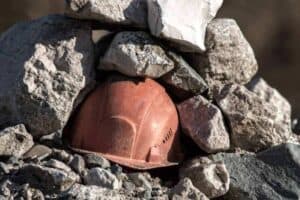Sudanese authorities say eight protesters have been killed in clashes since Wednesday, but Amnesty International has put the death toll at 37.

Hundreds of protesters rallied today in Sudan’s capital as riot police deployed heavily to prevent a planned march on President Omar al-Bashir’s palace to call for his resignation following days of deadly demonstrations.
Angry crowds have taken to the streets in a dozen cities across the economically troubled country since last Wednesday, after the government tripled the price of bread.
Police vehicles and officers armed with batons could be seen around the capital Khartoum as authorities braced for a further challenge to Bashir’s decades-long rule.
An AFP journalist saw security officers stationed on the roofs of buildings along the expected route of today’s march, which was called by an umbrella labour group.
In downtown Khartoum, police fired tear gas at the protesters who were chanting “Freedom, peace, justice and revolution is the people’s choice”.
Sudanese authorities say eight protesters have been killed in clashes since Wednesday, but Amnesty International has put the death toll at 37.
A troika of countries — Britain, Norway and the United States — along with Canada voiced “concern” over the violence in Sudan, the British embassy in Sudan said on Twitter.
It cited “credible reports” on “the use of live fire by the government of Sudan and of multiple deaths during several protests”.
Doctors in Sudan went on strike on Monday and the group bringing together professionals from different sectors pledged to submit a demand for Bashir’s resignation at today’s demonstration.
Bashir, who has been in power since a 1989 coup, sought to tamp down the discontent on Monday by vowing to “take real reforms” to solve Sudan’s economic woes.
But his statements appear to have done little to appease the protesters angered over economic hardship.
Protesters in several cities adopted the slogan used in the 2011 Arab Spring — “the people want the fall of the regime” — and attacked offices of the ruling party.
Sudan is mired in economic difficulties including an acute foreign currency shortage and soaring inflation.
The crisis has worsened despite the lifting of an economic embargo by the United States in October 2017.
Inflation is running at close to 70 percent and the Sudanese pound has plunged in value, while shortages in bread and fuel have been reported across several cities including Khartoum.
Today, the veteran leader headed south of Khartoum to Gezira state, where dozens of protesters had earlier called for him to go.
Dozens gathered in support of the president, who gave a public address praising the crowds for welcoming him to the city of Wad Madani.
Bashir said he considered the gathering a “clear response” to the “traitors, agents and mercenaries” seeking to destabilise the country and its institutions.
“We know we have economic problems… but this all can be handled,” said Bashir as he blamed the country’s economic difficulties on the “blockade” imposed by the West.
Since the start of the protest movement, Sudanese authorities had arrested several anti-government figures with liberal and communist backgrounds.
For more news your way, download The Citizen’s app for iOS and Android.
Support Local Journalism
Add The Citizen as a Preferred Source on Google and follow us on Google News to see more of our trusted reporting in Google News and Top Stories.








